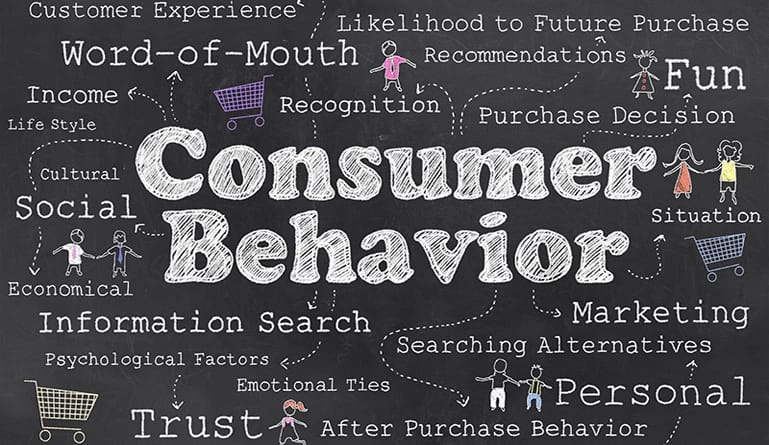In the ever-evolving world of tech investment, trends come and go—but some define an era. As we navigate the mid-2020s, a new breed of startups is emerging, driven not only by innovation and market opportunity, but by purpose. Sustainability and values-based marketing are no longer optional—they’re becoming essential building blocks of competitive advantage, investor interest, and long-term success.
In this article, we dive into how these themes are shaping tech investment strategies, fueling startup growth, and reshaping how technology connects with the world.
The Values-Driven Startup: Purpose Meets Profit
Consumers are smarter. Investors are more conscious. And founders? They’re increasingly building companies that reflect personal ethics and global responsibility.
Today’s most successful startups are born with a mission. Whether it’s reducing carbon footprints, promoting digital equity, or prioritizing ethical AI, values-based startups are attracting capital not in spite of their mission—but because of it.
Venture capital is catching up, too. Leading firms like Union Square Ventures, Sequoia, and Lowercarbon Capital are investing in startups that align with broader environmental and societal goals. Funds focused on impact investing, ESG, and social good are expanding fast.
Why it matters:
76% of consumers say they would boycott brands that go against their personal values.
ESG-conscious portfolios have outperformed traditional investments in several market cycles.
Founders with strong missions often build more resilient, community-driven businesses.
Sustainability as Core Business Strategy
Sustainability is no longer a bolt-on—it’s the backbone of modern tech ventures. Startups today aren’t just cutting emissions or offsetting carbon as an afterthought; they’re baking sustainability into product design, supply chains, cloud infrastructure, and even company culture.
Venture-backed climate tech startups are booming, with categories like:
Circular economy platforms (reuse, repair, and resale)
Carbon marketplaces and emissions-tracking APIs
Green logistics and sustainable delivery tech
Low-energy AI and eco-friendly software infrastructure
Even SaaS companies—traditionally light on physical resource usage—are tracking and reporting their carbon usage, helping customers do the same. Platforms like Planetly, Persefoni, and Watershed are helping businesses achieve climate transparency.
Why it matters: Sustainability is now a revenue generator. Companies that prioritize it are more likely to win large enterprise contracts, attract Gen Z talent, and earn media visibility—all of which boost growth and valuation.
Marketing That Reflects Values, Not Just Features
As competition intensifies, startups can no longer differentiate on features alone. That’s where values-based marketing comes in. Today’s brands are expected to take stands on sustainability, social justice, inclusion, and ethics—not just sell a product.
Startups embracing values-based narratives are winning hearts and wallets by:
Sharing their supply chain transparency journey
Highlighting diverse teams and inclusive company culture
Talking openly about mistakes and continuous learning
It’s not about virtue signaling. It’s about storytelling with authenticity. Consumers—and increasingly B2B buyers—want to understand the “why” behind a product as much as the “what” and “how.”
Case in point: Patagonia famously donates 100% of its profits to environmental causes. But tech brands are catching on too—look at startups like Allbirds, Ecosia, and Too Good To Go, whose business models and marketing are intertwined with social good.
ESG Metrics Enter the Startup Cap Table
Environmental, Social, and Governance (ESG) metrics are becoming part of early-stage diligence. While ESG reporting has long been the realm of public companies, VCs are increasingly applying these filters during due diligence—and startups are being asked to respond earlier.
We’re seeing:
Cap table clauses that tie impact to equity vesting
Investor questions on emissions, labor practices, and ethical sourcing
B Corp certifications as an investment signal
This shift is being driven by Limited Partners (LPs)—the institutions backing VC funds—who now demand ESG-aligned allocations as part of their risk and ethics frameworks.
Why it matters: Startups that track ESG metrics from day one build institutional readiness and long-term investor alignment. It’s also a sign of operational maturity—something many Series A and B VCs are now prioritizing.
The Green Stack: Building with Climate in Mind
As green tech becomes mainstream, we’re seeing the rise of the “Green Stack”—startups that build or rely on a climate-conscious tech stack. From using data centers powered by renewable energy to writing low-emission code, this is about building infrastructure that minimizes environmental impact at scale.
Key tools and practices include:
Integrating APIs to track sustainability KPIs across operations
Leveraging carbon offset partners to neutralize digital emissions
Even product design choices—like encouraging fewer emails or compressing images for energy efficiency—are being considered by climate-conscious startups.
Why it matters: As regulatory requirements (like the EU’s CSRD or SEC climate disclosures) expand, early adoption of green tech tools gives startups a future-proof edge.
Conscious Consumerism Meets Tech Innovation
A powerful convergence is happening: sustainability-focused tech meets rising consumer awareness. In areas like fashion, food, housing, and mobility, consumers are actively choosing brands that align with their environmental and social values.
Startups are responding with:
Marketplaces for sustainable goods (e.g., secondhand tech, eco-conscious brands)
Transparent rating systems for product carbon footprints
Browser extensions that suggest sustainable alternatives
VCs are backing this shift with a wave of funding in climate commerce, ethical fintech, and slow-consumption platforms.
Why it matters: Consumer behavior is one of the strongest signals for tech investors. When a cultural movement like sustainability aligns with market momentum, it creates a flywheel of impact, adoption, and revenue.
Culture as a Competitive Advantage
Startups often obsess over product-market fit—but in the sustainability era, culture-market fit is just as important. Founders who build transparent, inclusive, and values-aligned teams are more likely to attract top talent and build loyal user bases.
Venture firms increasingly look at:
Diversity, equity, and inclusion (DEI) metrics
Ethical sourcing of data and labor
Internal sustainability and mental health practices
Culture is no longer considered a “soft” metric. It’s a core driver of brand identity, investor trust, and even exit opportunities—especially as larger tech firms prioritize impact-focused acquisitions.
Final Thoughts: From Trend to Table Stakes
What was once seen as a niche or idealistic approach to tech building—sustainability, ethics, values-based branding—is quickly becoming a default expectation. For startups, this isn’t just about optics. It’s about future-proofing, differentiation, and building companies that can lead in a values-driven world.
For venture capitalists, the message is clear: the next generation of iconic tech companies will be those that align profit with purpose, growth with impact, and technology with humanity.













Leave a Reply